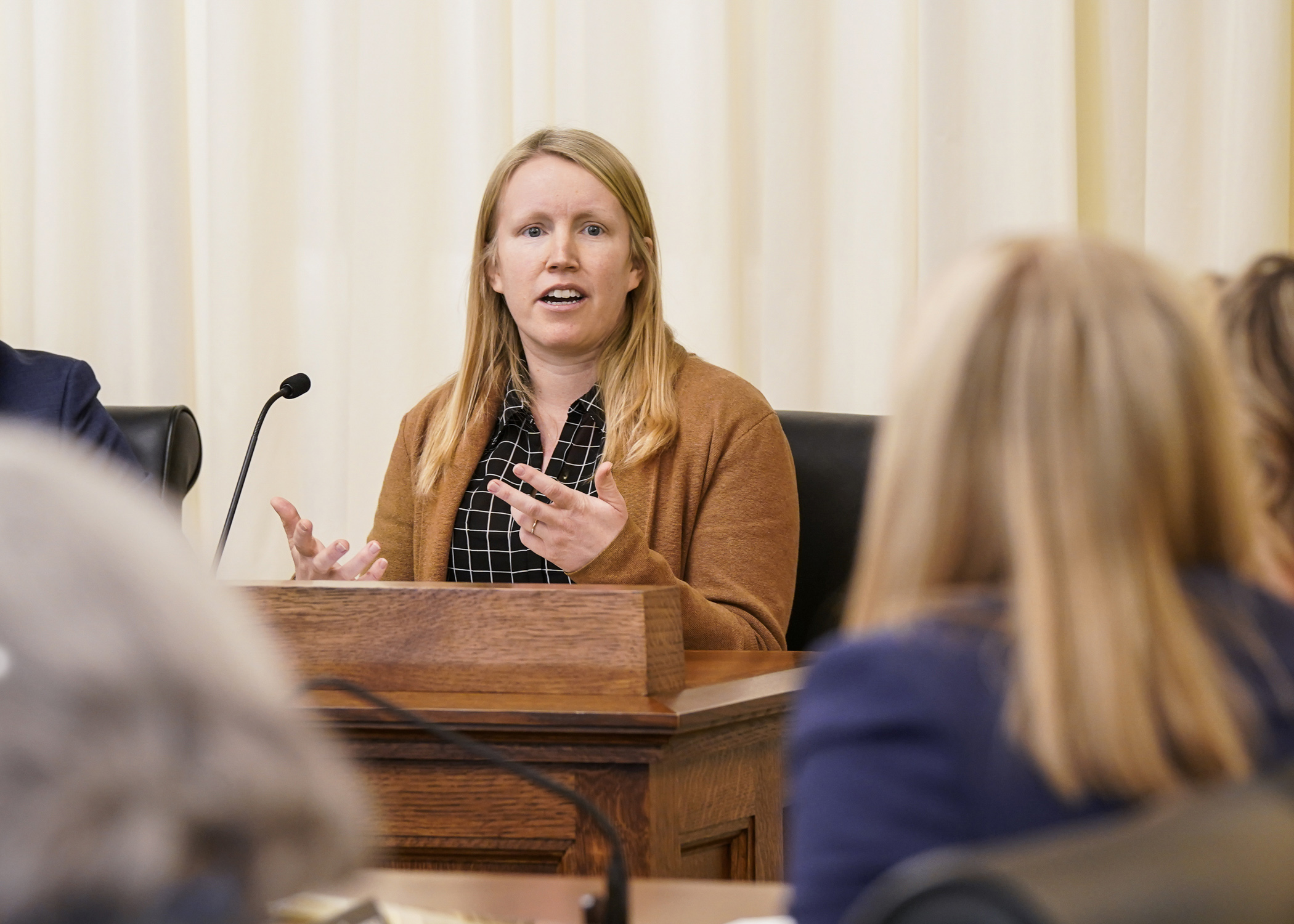Special education funding gap would disappear under massive spending proposal

Seventeen percent of Minnesota’s students qualify as needing special education. A federal mandate has been in place since the 1970s to ensure students with special needs are given equal access to education. However, state and federal funds consistently fail to fully fund this educational area, placing a large burden on local school districts.
Rep. Dan Wolgamott (DFL-St. Cloud), sponsor of HF18, intends the state to finally step up and eliminate this chronic funding gap with more than $3 billion over the next four fiscal years.
“This is the right thing to do. These services are critical to our students with special needs to help them reach their fullest potential,” Wolgamott said. “But, unfortunately, Minnesota has never fully funded this mandate.”
The House Education Finance Committee laid the proposal over, as amended, Tuesday for possible inclusion in an omnibus bill.
Every school district in Minnesota currently has a shortfall between special education costs and revenues received from the state and federal government. This shortfall is known as the special education cross subsidy. Covering the cross subsidy forces districts to consistently dip into their general education funds.
Wolgamott characterized this as ”robbing Peter to pay Paul” as it essentially pits the funding needs of special education students against those of the wider student population.
His proposal is thus a simple one – starting in fiscal year 2024, instead of covering a mere 6.43% of this funding gap, the state would reimburse 100% of the adjusted net cross subsidy for all school districts.
Per a fiscal note, this would amount to over $1.65 billion in the coming biennium, and over $1.92 billion in the 2026-27 biennium.
Wolgamott did not shy away from admitting the bill is an expensive proposal but argued it is not right that costs are being passed on to local school districts. The state should pick up the tab, he said, noting the shortfall has grown year over year and is projected to top $750 million statewide for fiscal year 2024.
The bill contrasts sharply with Gov. Tim Walz’s budget proposal, which aims to only close the funding gap by 50%, providing $772.6 million in the next biennium and $849.1 million in the 2026-27 biennium.
While in agreement with the premise of the bill, Rep. Nolan West (R-Blaine) expressed frustration that while the federal government has mandated special education nationwide, it has failed to live up to its promised funding commitment for 50 years and that Minnesota is now being compelled to dip into the surplus to make up the difference.
Related Articles
Search Session Daily
Advanced Search OptionsPriority Dailies
Speaker Emerita Melissa Hortman, husband killed in attack
By HPIS Staff House Speaker Emerita Melissa Hortman (DFL-Brooklyn Park) and her husband, Mark, were fatally shot in their home early Saturday morning.
Gov. Tim Walz announced the news dur...
House Speaker Emerita Melissa Hortman (DFL-Brooklyn Park) and her husband, Mark, were fatally shot in their home early Saturday morning.
Gov. Tim Walz announced the news dur...
Lawmakers deliver budget bills to governor's desk in one-day special session
By Mike Cook About that talk of needing all 21 hours left in a legislative day to complete a special session?
House members were more than up to the challenge Monday. Beginning at 10 a.m...
About that talk of needing all 21 hours left in a legislative day to complete a special session?
House members were more than up to the challenge Monday. Beginning at 10 a.m...